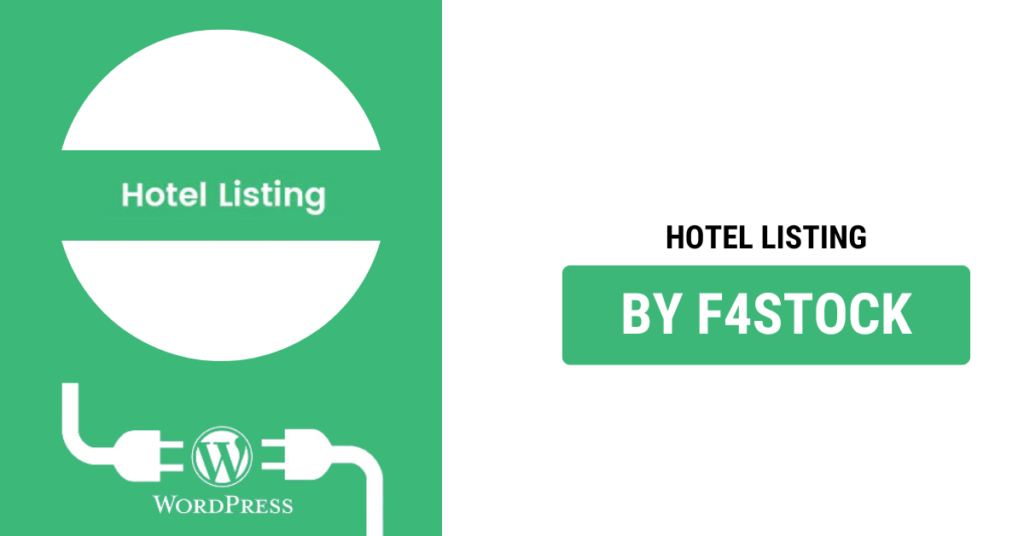When creating a hotel website, choosing the right WordPress plugin is essential for ensuring a smooth user experience, increased visibility, and streamlined management of your property listings. A good hotel listing plugin not only allows you to showcase your rooms and amenities but also helps to manage bookings, handle payments, and provide useful information to potential guests. In this blog, we’ll dive into the top features you should look for when selecting a hotel listing plugin for your WordPress website.
1. Easy-to-Use Interface
The ease of use is one of the most important features of any WordPress plugin. A hotel listing plugin should have an intuitive and user-friendly interface, making it easy for both website owners and users to navigate. Your guests should be able to find and book rooms with minimal effort. Likewise, you should be able to manage listings, update content, and track bookings without a steep learning curve.
Look for plugins that offer drag-and-drop functionality, customizable templates, and an easy-to-navigate dashboard. This will save you time and ensure your website is accessible to both tech-savvy users and beginners.
2. Customizable Listing Options
Every hotel has unique needs when it comes to how it showcases its rooms and amenities. Look for a plugin that allows you to fully customize hotel listings. Whether it’s displaying room types, prices, photos, amenities, or check-in/check-out times, your plugin should allow you to tailor each listing according to your hotel’s branding and style.
Customizable listing options can also extend to filtering search results, allowing guests to search for specific features such as pet-friendly rooms, free Wi-Fi, or pools. This flexibility will make your listings more appealing to a wider audience.
3. Integrated Booking System
One of the main features you’ll need in a hotel listing plugin is an integrated booking system. This feature allows guests to check availability, select dates, and make reservations directly on your website. A streamlined booking process will improve user experience and reduce the chance of lost reservations.
Look for plugins with advanced booking features such as real-time availability, booking confirmation emails, and options for adding extra services (e.g., breakfast, parking). Also, consider whether the plugin integrates with popular booking engines like Booking.com, Expedia, or Airbnb.
4. Payment Gateway Integration
To complete the booking experience, your plugin should support multiple payment gateways for easy and secure transactions. Look for a hotel listing plugin that integrates with popular payment processors like PayPal, Stripe, and Authorize.Net, as well as credit card payments.
Security is key when dealing with payments, so ensure that the plugin supports SSL encryption for secure financial transactions. A secure payment system can also build trust with your guests, encouraging them to book with confidence.
5. Multilingual and Multicurrency Support
If you are catering to international guests, your plugin should support multiple languages and currencies. Offering your hotel listings in multiple languages will make your website accessible to a broader audience, and multicurrency support ensures that guests can pay in their preferred currency.
Some advanced hotel listing plugins come with built-in translation options or integrate with popular translation plugins like WPML or Polylang. This ensures that your website is truly global and can accommodate guests from all over the world.
6. SEO Optimization
Search engine optimization (SEO) plays a significant role in driving traffic to your hotel website. Look for a hotel listing plugin that has built-in SEO features, such as customizable meta tags, title tags, and URL slugs. This will ensure that your hotel listings rank well on search engines like Google and attract organic traffic.
Additionally, features like schema markup can help your hotel listings stand out in search results, displaying additional information like star ratings, reviews, and availability directly in the search engine result pages (SERPs).
7. Review and Rating System
Guest reviews and ratings can greatly influence potential customers’ decisions to book a room. Look for a hotel listing plugin that integrates a review and rating system where guests can leave feedback on their stay. This will not only help build trust but also provide valuable insights for future guests.
You should also ensure that the plugin allows you to moderate reviews, respond to feedback, and display star ratings on your listings. Positive reviews can boost your hotel’s credibility and visibility, while constructive feedback can help you improve your services.
8. Mobile Responsiveness
More and more users are booking hotels from their mobile devices, so it’s crucial that your hotel listing website is mobile-friendly. Choose a plugin that provides mobile-responsive templates or themes. This will ensure that your site looks and functions well on smartphones and tablets, offering a seamless booking experience for guests on the go.
Mobile optimization can also positively impact your SEO ranking, as search engines prioritize mobile-friendly websites in search results.
9. Support for Multiple Properties
If you manage multiple hotel properties, the plugin should allow you to list and manage all of them from a single dashboard. Features like multi-location support, property comparisons, and a unified calendar for all properties can be extremely helpful in managing your portfolio.
This feature is especially useful for hotel chains or individuals managing vacation rentals, hostels, or bed-and-breakfasts. A plugin that offers this flexibility saves time and ensures your listings are well-organized.
10. Regular Updates and Support
Finally, choose a plugin that offers regular updates and excellent customer support. As WordPress evolves, it’s important that your plugin stays up to date with the latest version of WordPress to avoid compatibility issues. Look for a plugin that has a good track record of releasing updates and offering ongoing improvements.
Support is equally important. Opt for a plugin that provides reliable customer service, whether it’s through live chat, email support, or an active community forum. This ensures that you can get help when you encounter issues or need assistance.


